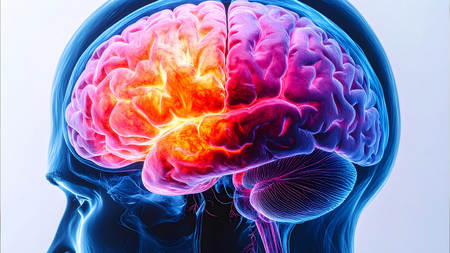
New Delhi, Aug 4 (IANS) The brain might become the target of new type 1 diabetes treatments and pave a better way for insulin management, according to a study.
Researchers had, over a decade ago, found that an acute complication of type 1 diabetes — diabetic ketoacidosis (DKA) — can be resolved with the hormone leptin, even in the absence of insulin.
In the analysis, published in the Journal of Clinical Investigation, the team explained how leptin affects the brain and how it might be used in future therapeutics.
DKA happens when the body is unable to make insulin and begins to break down fat for fuel. This can lead to a life-threatening buildup of sugar (glucose) and ketoacids in the blood.
Doctors have typically administered insulin to address the complication. But evidence now shows that, when insulin is insufficient, the brain plays a key role in driving DKA, explained researchers from the University of Washington in the US
When the pancreas can’t make insulin, “the brain gets the message that the body is out of fuel, even if it’s not. This information is being communicated in part by a low blood level of the hormone leptin,” said Dr. Michael Schwartz, Professor of Medicine, at the University’s School of Medicine.
Leptin helps the brain regulate appetite and body weight. Leptin is produced by your body’s fat cells. The hormone is carried by the bloodstream into the brain, particularly an area called the hypothalamus.
The study noted that controlling blood glucose with leptin could unlock new avenues of treatment for patients.
Schwartz noted that insulin management is a substantial burden for patients and their families.
“I think if you could treat type 1 diabetes without daily insulin injections and blood sugar monitoring, patients would say that is the greatest thing ever,” he added.
If the brain can be convinced that fuel stores are not depleted, or if specific brain neurons that trigger the production of glucose and ketones are turned off, the body stops the reaction that leads to severe hyperglycaemia and DKA.
“This new framework challenges that conventional wisdom about insulin deficiency as the sole cause of diabetic ketoacidosis that has been widely accepted for decades,” said Schwartz.
“It shows that the brain plays a powerful role in the genesis of uncontrolled diabetes — and may hold the key to new treatments.”
–IANS
rvt/




